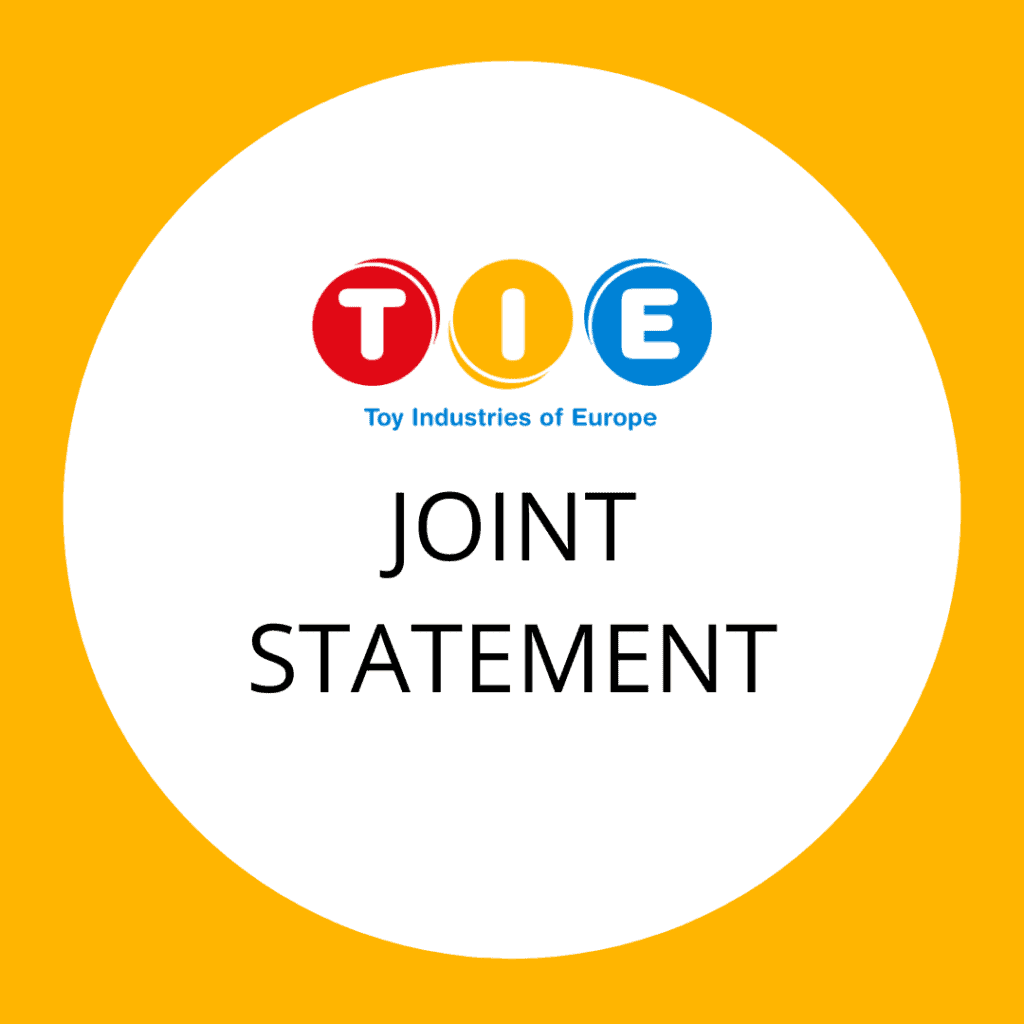Toy Industries of Europe (TIE) welcomes today’s Europol report on its LUDUS I operation and the publication of the LUDUS II results. The analysis report confirms the need for far-reaching legislation for the online world and for allowing the private sector to play its role in detecting and stopping illegal traders.
Operation LUDUS I, the first international law enforcement operation against counterfeit toys, was carried out from 19 October 2020 to 31 January 2021 and a second edition was organised between October 2021 and January 2022. More than five million fake toys of a value of about EUR 18 million were seized during LUDUS II. Online shopping was also a focus, as 72 online marketplaces were checked and 30 websites closed. Both Ludus I and II counted on the support and contribution of TIE members.
The report on the first edition highlights that increased digitalisation is a key challenge in detecting fake and dangerous toys and in reinforcing the toy trade more generally. Sellers of illegal toys rely heavily on online trade not only via e-commerce platforms but also through social media and instant messaging services. Due to the limited use of the “know your business customer” (KYBC) principle, national authorities face significant operational difficulties in identifying these counterfeiters and dismantling their networks.
The LUDUS I operation also revealed that strong cooperation with the private sector is very fruitful in detecting counterfeiting. Being in possession of unique knowledge of their own products, brand owners are well placed to flag fake toys infringing on their trademark. The Digital Services Act (DSA) should recognise the essential role they could play in keeping counterfeit toys out of the EU market.
Catherine Van Reeth, Director General at TIE said, “Together with more resources, law enforcers must have the right tools at their disposal to be able to do their job successfully and stop all those dishonest traders who put children in danger and undermine the reputation of responsible toy makers. As the final discussions on the DSA are in full swing, the EU legislators should not miss the opportunity to broaden the KYBC requirements and to grant the trusted flagger status to rights holders.”
More Information:

